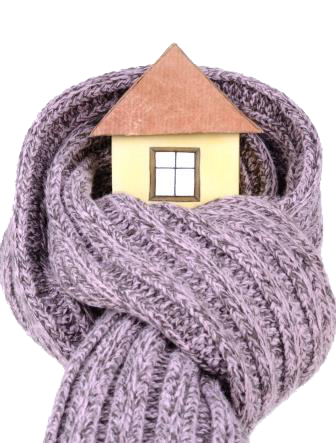 Has someone told you he heats his home with a heat pump instead of a furnace?
Has someone told you he heats his home with a heat pump instead of a furnace?
Maybe someone recommended you buy a heat pump to heat your home, lower heat cost and save money?
With heating costs being a significant part of homeowner’s yearly expenses, it’s important to know your options for heating your home and saving money. Homeowners in colder climate have additional considerations, including severe storms and sub-zero temperatures.
Excelsior Homes are constructed to be well insulated and highly energy efficient, but each new home or renovation project must consider heating and cooling options. Our customers frequently ask our recommendations for heating, and we almost always recommend using a heat pump. That’s why it’s important you understand what a heat pump is, how it works, and why we make this recommendation.
What is a heat pump?
A heat pump is an appliance that sits outside the home, similar to or in some cases the same as, an air conditioning unit (in many cases a heat pump can work double-duty as an air conditioning unit in the summer). A heat pump uses electricity to heat your home, avoiding the use of natural gas or propane. A heat pump is a highly efficient source of heat that can save homeowners considerable amounts on their heating bills.
Excelsior Home recommends a Lennox heat pump to our clients who report back that they’ve greatly appreciated this recommendation.
How does a heat pump work?
Heat pumps work by efficiently transferring heat from one space to another. Just like an air conditioner transfers heat from inside to outside, heat pumps can transfer heat from outside to inside. By themselves, heat pumps can effectively heat a home down to about 20*-25* outdoor temperature. Below this point another source of heat is generally introduced to either assist or take over the heating requirements.
According to Nate Johnson of Plumbing and Heating by Craig, “The most common arrangement involves a heat pump and gas furnace combination. When the heat pump can no longer heat the home on its own, it allows the furnace to take over. The second most common arrangement involves a heat pump, gas furnace and electric plenum heater. This system is generally used where electric load management programs are available. With this system, the heat pump can now operate down to 0* outdoor temperature. The plenum heater simply “adds” whatever amount of heat the heat pump is unable to provide. This allows the system to remain on the load management electrical rate for the bulk of the heating season. The gas furnace simply acts as a “back-up” or “emergency” heat source and is required to get the load management rate. This means your heat bill stays as low as possible, for as long as possible.”
There are some new configurations available that can reduce your use of gas even further, and we recommend reviewing your options with Nate at Plumbing and Heating by Craig of Hutchinson, MN.
Benefits of Electric Heat
As many Midwesterners know, the cost of propane can fluctuate greatly. In some parts, the availability of propane isn’t always stable, which drives up costs and worry even more. Using a heat pump is the equivalent of about $1.21 of propane per gallon, which you’d be hard pressed to find. Even if you can find a great deal on propane, it’s unlikely to be stable like the cost of electricity.
The Meeker Cooperative published a recent article that does a great cost comparison and explanation of electricity versus propane heat.
“Even with perfect conditions, chances are likely that propane prices will never return to $1.21 a gallon.” Meeker Coop
Another benefit of heating with a heat pump is that there’s no special configuration needed. While there is certainly installation required, your home is already equipped with electricity and shouldn’t need any new or special construction needed to install or switch to a heat pump.
Your team at Excelsior Homes is happy to discuss your HVAC options with you as you explore choices in your new modular or manufactured home. We have years of experience and feedback from other homeowners that you’ll appreciate as you make your decisions. For very specific heating needs and questions, you can trust Plumbing and Heating by Craig.






